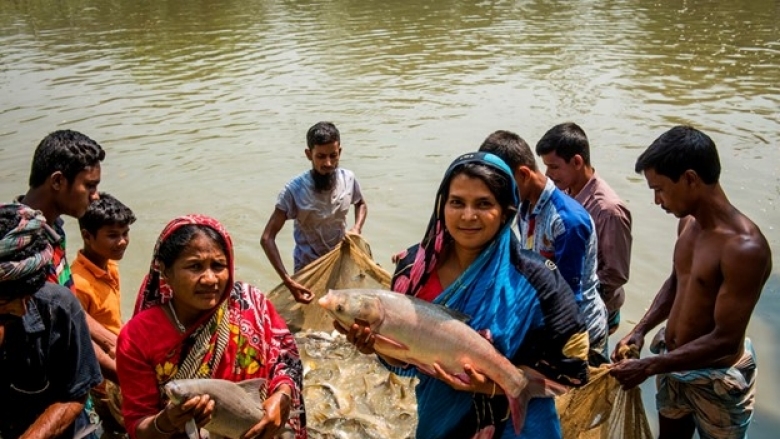Challenge
Bangladesh successfully reduced extreme poverty in rural areas from 37.9 percent in 2000 to 21.1 percent in 2010, but rural poverty is still almost three times that in urban areas. New challenges to prosperity have recently emerged: The pace of poverty reduction declined as job creation slowed; regional disparities expanded and the pace of poverty reduction varied across the country; the COVID-19 crisis reversed the trends of growth and progress in development outcomes, and the country’s economic and climate vulnerabilities increased. Shocks such as sudden illness, chronic or poor health, death and disability, and natural disasters threaten to push vulnerable households back into poverty. Women still face severe barriers to sustainably improving their livelihoods. Supporting productive employment opportunities for income generation in the agriculture sector and establishing sustainable community support mechanisms were considered important strategies to address rural poverty, improve resilience in the face of adversity and improve women’s status within households and in society at large.
Approach
The World Bank-supported Nuton Jibon Livelihood Improvement Project (NJLIP) took a five-pronged approach: (1) It mobilized and strengthened community financing institutions that provided technical and financial assistance to beneficiaries to engage in income-generating activities and develop community infrastructure; (2) It established second-tier institutions that supported village-level community institutions and livelihood demands; (3) It supported and strengthened producer groups to increase revenues; (4) It provided nutrition and health awareness campaigns; (5) It supported youth skills development and employment.
NJLIP adopted a Community-Driven Development (CDD) approach, combining livelihood support, empowerment, access to finance, and community development. Strong institutions building on community mobilization raised the commitment of beneficiaries to sustain what they had built. NJLIP followed the Social Investment Program Project-II which had successfully increased beneficiary incomes, women’s empowerment, youth employment, and food security in Bangladesh. In addition to focusing on the sustainability of community institutions and strengthening second-tier institutions, NJLIP also strengthened partnerships and opportunities for value addition to further enhance beneficiaries’ income.

